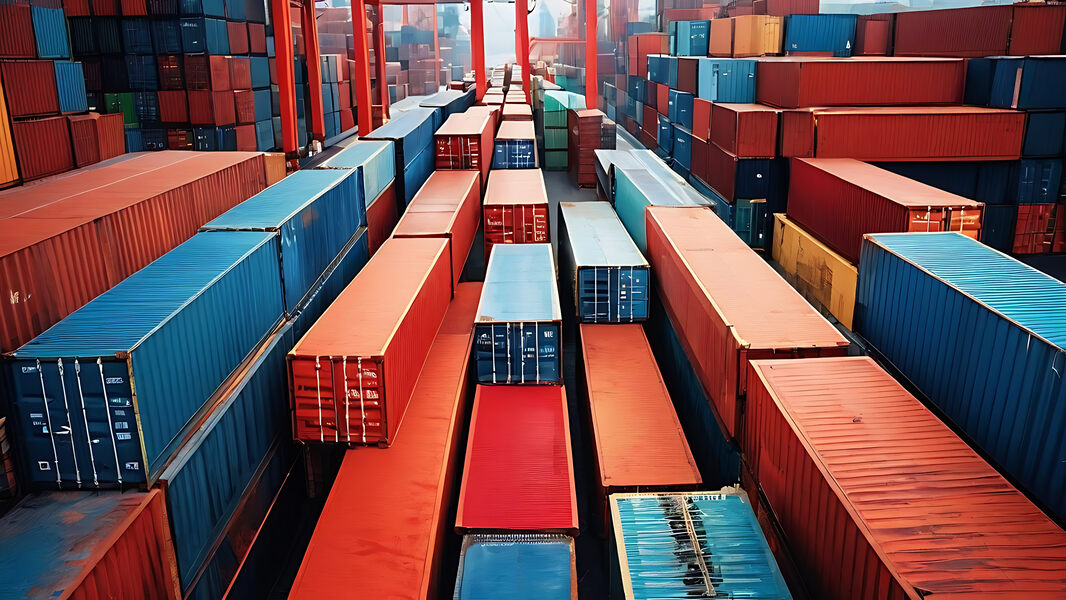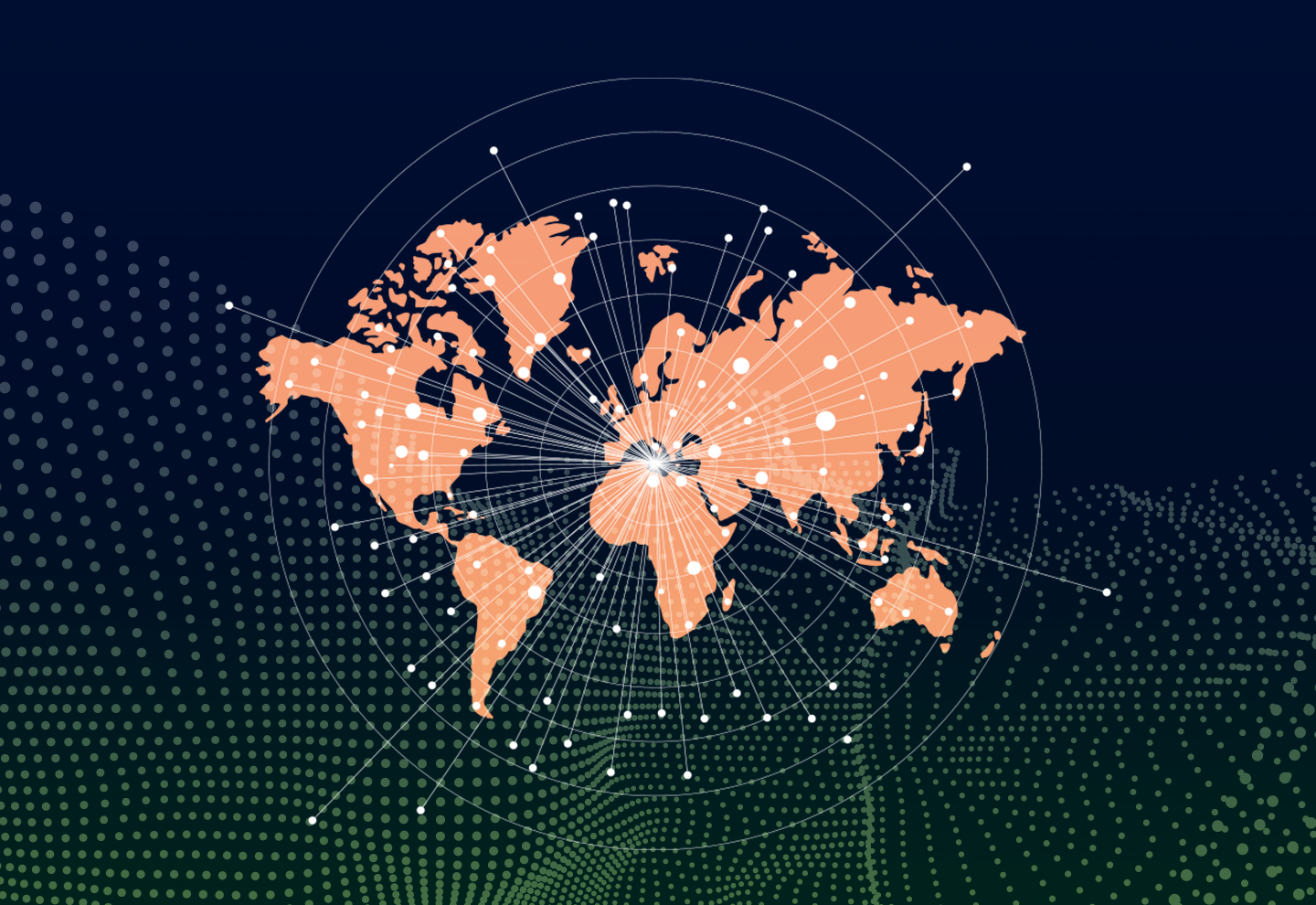“Deglobalization is a short-term trend, we will get back to our old numbers”

Globalization has been slowed down because of the coronavirus pandemic, but we will go back to our trade of goods, services and people.
This was the overriding message of the virtual roundtable held live on Tuesday 16th June at 4pm (CEST), the same day as the release of the 2020 IMD World Competitiveness Ranking.
The roundtable took place hours after the results revealed that smaller economies are leading the way in competitiveness and traditional heavyweights like the US and China and are falling down the scale.
The Center’s Director and IMD Professor of Finance Arturo Bris was joined in discussion by three experts in the field of economic governance: H.E. Dr. Eiman Al Mutairi, Assistant Minister to the Minister of Commerce and Investment and Director of the National Competitiveness Center in Saudi Arabia; Diego Molano, Colombia’s Former Minister of Technology and Communications; and Alexander Stubb, Director of the School of Transnational Governance at European University Institute and Former Prime Minister of Finland.
Globalization is finding its feet again
Alexander Stubb, who also held the positions of Finance Minister, Foreign Minister and Trade and Europe Minister during his time in government from 2008 to 2016, said that whilst insularity was a reality, there was still a clear trend towards globalization:
“Open any paper in the US and you see closures of borders, and measures to protect jobs and the economy. The same is happening in Europe. But while you can stop goods trade, stopping services is a bit harder. Plus, we now have the trade of data, which grew 40% last month.”
With the US and Europe giving space to new players, there is going to be deglobalization in the short run, he said.
However, we should remember that (a) the crisis is just accelerating a process that was there before and (b) small countries are part of bigger economies.
“Many small economies in the top ten [of IMD’s 2020 Ranking] are part of the bigger economy of the European Union,” said Stubb.
While they have the advantage of dealing with crisis because they are agile and flexible, they are also dependent in terms of global megatrends.
He added that one reason Nordic countries together with other countries with relatively small populations such as Canada, New Zealand, Australia, Belgium and Austria are performing well is because they are very transparent, globally oriented, and therefore competitive in many ways.
Data is changing the face of globalization
COVID is causing a reduction of physical globalization and an increase in virtual globalization, Stubb insisted: “We are seeing more emphasis on value. Some people will go native, becoming concerned about where their masks are made etc.
“COVID has meant a shift towards the state and this will stay a while, but in the next two years the pendulum will swing back to market again. What we are seeing is a re-accommodation.
“People are global. We will get back to the old numbers in terms of goods and services trade.”
Diego Molano, who led Colombia to become one of the top countries in its region in terms of ICT, said that that the more competitive economies in Latin America had technology to thank in great part.
“Some 80% of homes in Uruguay have fibreoptic and the average in Latin is 5%. With the crisis there has been an easy transition to remote education.
“My fear now is: will the rich become richer and poor become poorer? Do we have everyone ready for this new world?”
Answering his own question, he said: “Talent and reskilling is the single most important thing. Reskill people in your country and reskill yourself.”
Countries need reforms now more than before
Another main thrust of the discussion was how countries need a strategy now more than ever – time for a “true populism” as opposed to outside socialism it was suggested.
“Whilst short-term policies might cure injures of the crisis, now is also the time for long-term structural changes to economies,” said Professor Bris.
H.E. Dr. Eiman Al Mutairi, who has been heavily involved in Saudi Arabia’s ambitious development strategy Vision 2030, was in full support of highlighting talent, but she added that in weaning off oil and restructuring the economy, Saudi Arabia needed to import a lot of talent and this meant making the business environment easier to enter.
“We have looked at the business environment and infrastructure as they are important but also at the digital economy and the inclusiveness of the economy,” she said.
“This crisis made us ask what would happen after the crisis: do we have the whole ecosystem? Do we have the necessary logistics? The good that has come from this is that it has served as a form of stress test.”
H.E. Dr. Eiman Al Mutairi spoke of part of Saudi Arabia’s success to date being how it had lifted restrictions on females, allowing a huge amount of talent back into the market and equal competition.
Now, she said, is the time to ask: “Are we fully automated? Where are our gaps? How is our food, medicine, education and healthcare?”
We must maintain our openness to people
Professor Bris posed the dilemma of attitudes of governments towards immigrants especially when they come from poorer countries. The message was that if globalization isn’t going anywhere in the long-term, our openness must be maintained.
Diego Molano referenced the Venezuelan migration to Colombia as a positive effect of globalization:
“Rich Venezuelans came to Colombia to invest. Then another wave came to work. Then the poor people came from Venezuela and that’s when social problems came. We all want the money but we have to take human rights into consideration.
“Just look at the coffee industry. The Colombians didn’t want to pick up coffee beans and the Venezuelans did.”
Alexander Stubb cautioned that we have had a taster enough of deglobalization’s negative effects during the pandemic, and that this should serve as food for thought to the closed-minded:
“All great nations have been built on migratory movements. To the Trumpians out there, just think about your life during COVID because that is what closing borders does to your jobs, your health.” That, he said, is what deglobalization is.
Research Information & Knowledge Hub for additional information on IMD publications
Now in its eighth year, the 2024 IMD World Digital Competitiveness Ranking measures the capacity and readiness of 67 economies to adopt and explore digital technologies as a key driver for economic transformation in business, government, and wider...
The UAE has been making waves recently in the technology world. A $1.5 billion deal between American tech giant Microsoft and Abu Dhabi’s AI champion,G42, seems to mark a shift in global alliances. This deal is significant not just in terms of the...

Michael Wade and Tomoko Yokoi explain how IMD ranked the world's leading companies on AI adoption and use – and reveal which topped the list.

A balanced assessment of the past eight years is that, in terms of trade policy, America has turned protectionist, implementing significant measures to restrict domestic market access to foreign (non-US) imports.
Climate change, geopolitical frictions, and supply chain disruptions call for more sustainable trade practices that can withstand the pressures of volatility. But for trade to be sustainable, it must also be resilient. IMD World Competitiveness Ce...
The idea of an EU bond, a common safe asset, has been gaining attention lately, particularly following calls for its introduction this month by former Italian prime minister Mario Draghi.

The ways popular frameworks are used fall short in today’s rapidly changing environment. Here is a new way to make better-informed strategic choices.

Companies desperately in need of a turnaround in fortunes should take inspiration from the 2008 rescue mission by the then-new Ford boss Alan Mulally.
AI could threaten high-income economies’ attractiveness to talent, finds 2024 IMD World Talent Ranking. The economies where AI is most noticeably replacing humans are found to also be those where discrimination is on the up – and there seems to be...
Foreign firm access to the public procurement markets—valued at some $13 trillion worldwide—is not governed by standard trade policies and multilateral trade accords. In trade policy circles, failure to publish procurement tenders in a global lang...
IMD World Competitiveness Center Report, 14 November 2024, 8th edition
Research Information & Knowledge Hub for additional information on IMD publications
Research Information & Knowledge Hub for additional information on IMD publications
Research Information & Knowledge Hub for additional information on IMD publications
Research Information & Knowledge Hub for additional information on IMD publications
Research Information & Knowledge Hub for additional information on IMD publications
Research Information & Knowledge Hub for additional information on IMD publications
Research Information & Knowledge Hub for additional information on IMD publications
Research Information & Knowledge Hub for additional information on IMD publications
IMD World Competitiveness Center Report, September 2024
Research Information & Knowledge Hub for additional information on IMD publications
in The Quarterly Review of Economics and Finance 9 September 2024, ePub before print, https://doi.org/10.1016/j.qref.2024.101898
Research Information & Knowledge Hub for additional information on IMD publications


